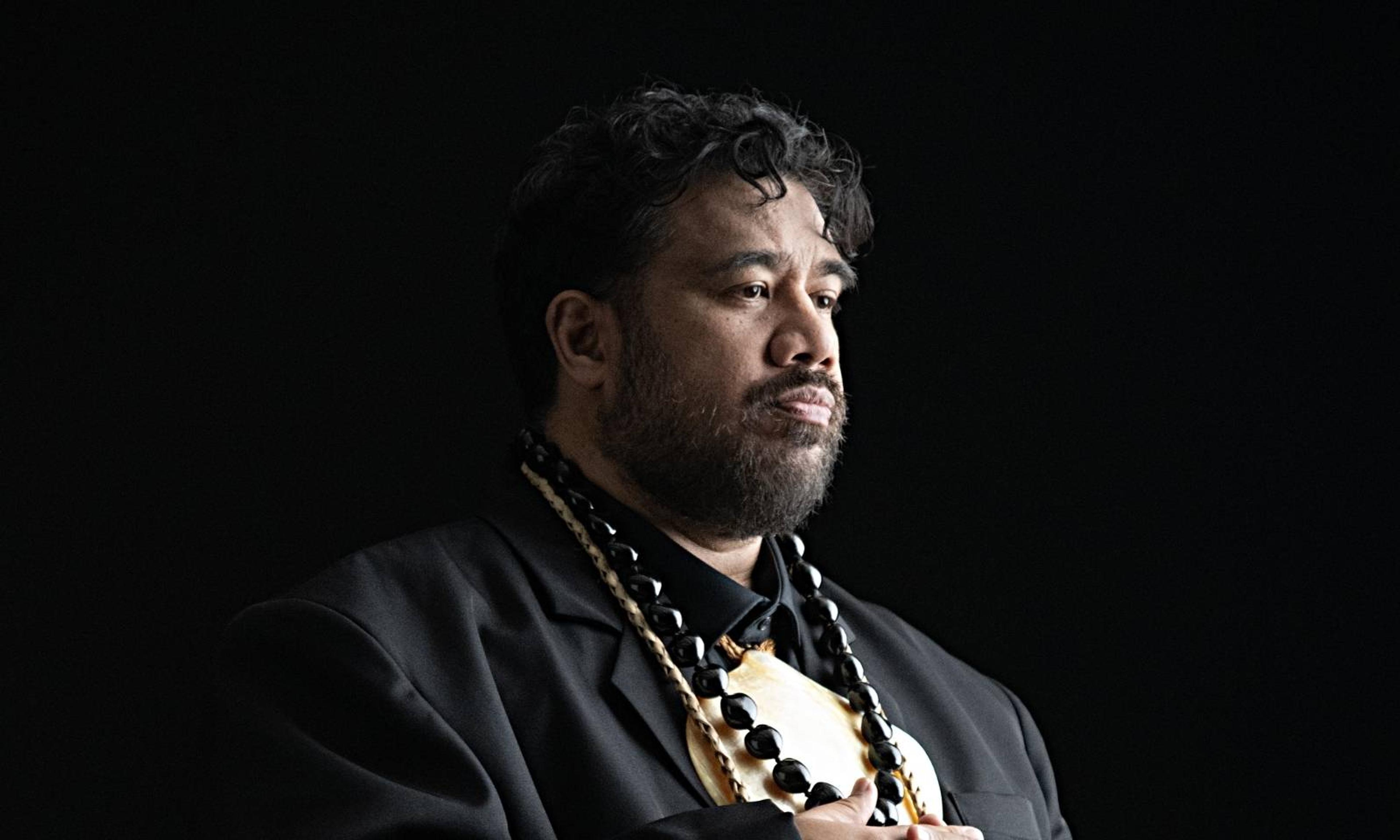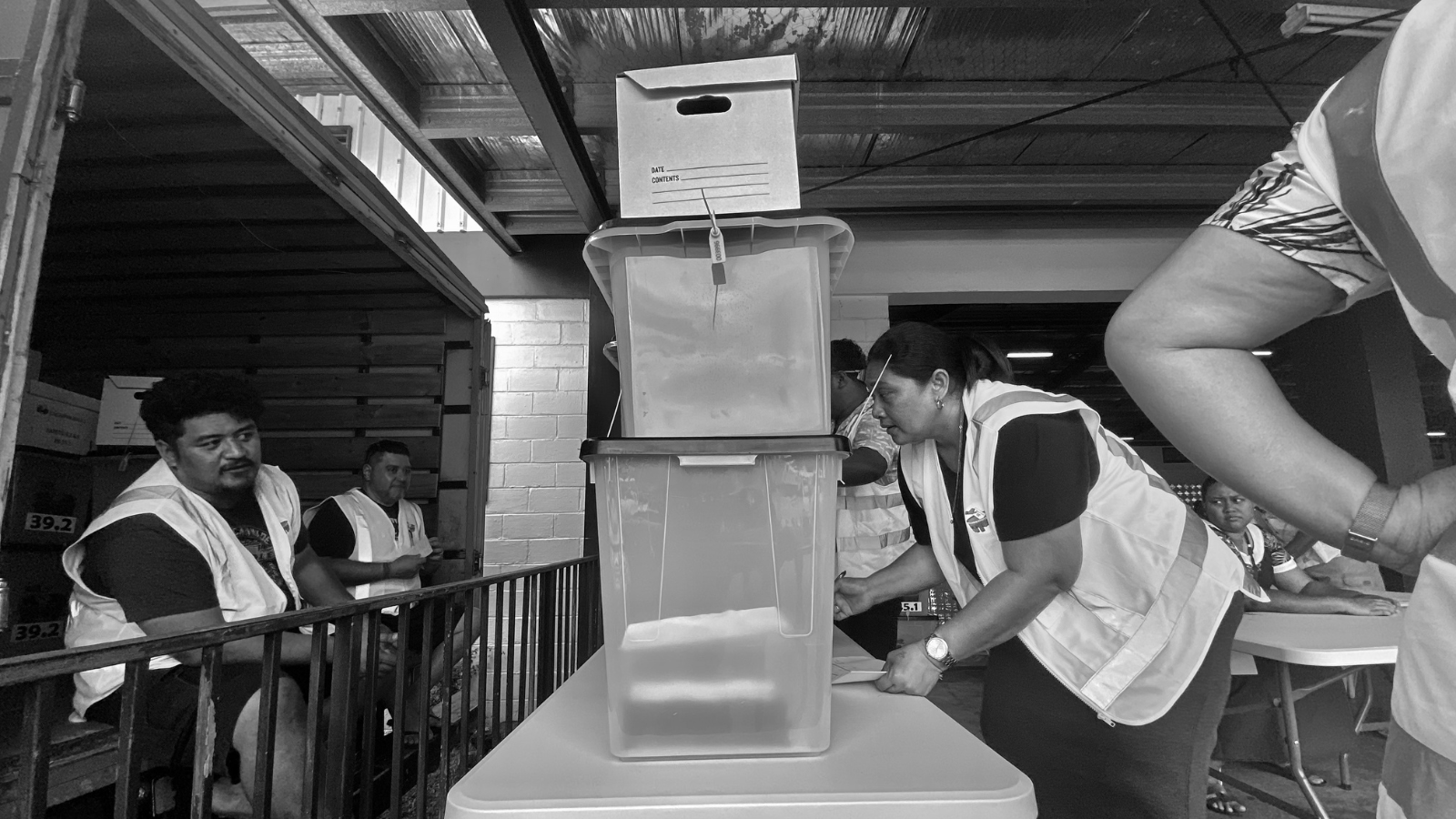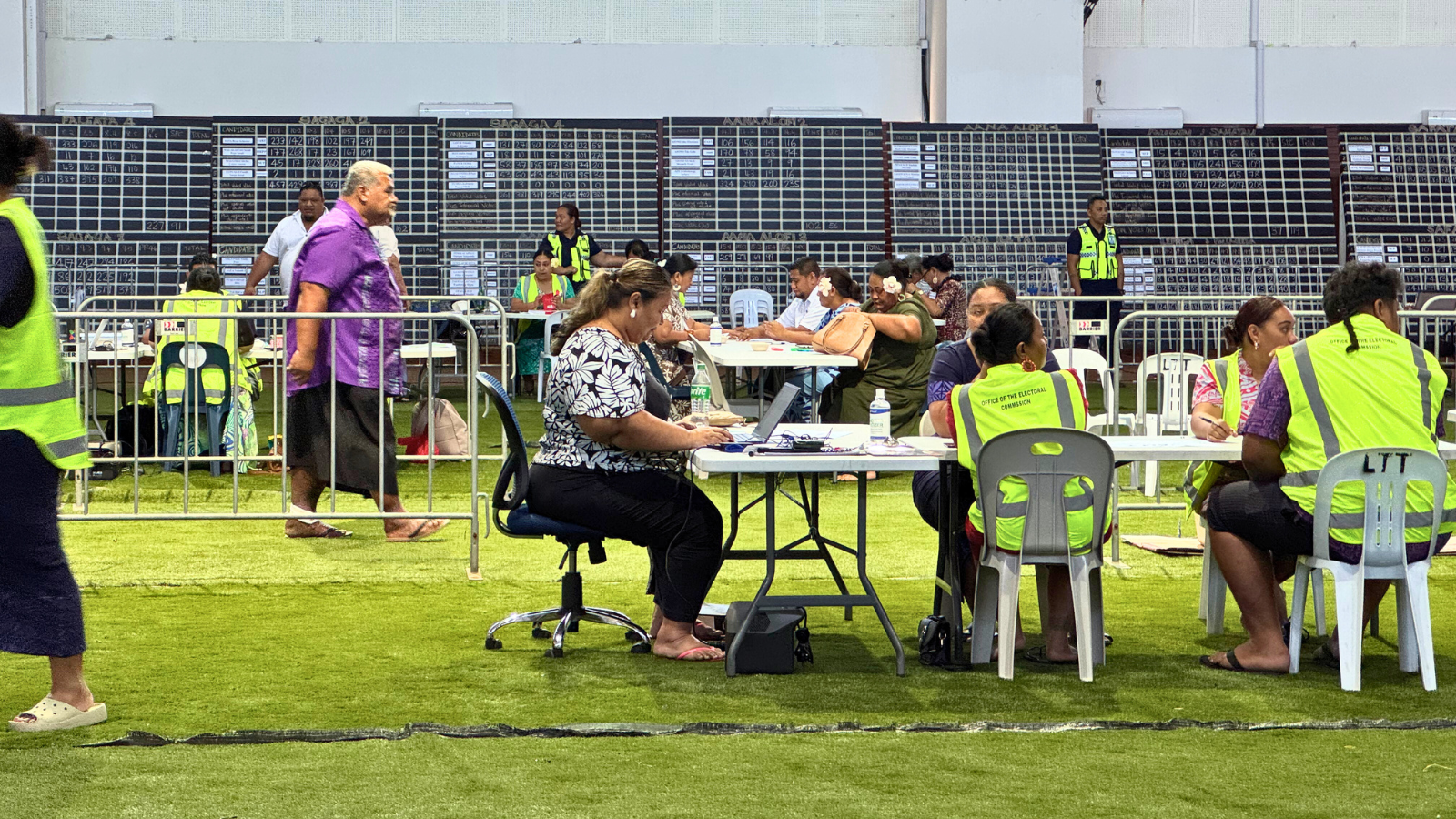

Commissioner Tuiafelolo John Stanley says candidates should know better than to try and access restricted spaces during vote counting.
Photo/Renate Rivers
FAST presence at electoral office raises concerns from Sāmoa elections commissioner
Tuiafelolo Toleafoa John Stanley warns that interference is a crime as police step up security.



UK royal arrest sends shockwaves as Jeffrey Epstein files reference Pacific islands - reports

Second Apology: Fijian artist’s bold new film demands more for Pacific communities




UK royal arrest sends shockwaves as Jeffrey Epstein files reference Pacific islands - reports

Second Apology: Fijian artist’s bold new film demands more for Pacific communities

Samoa’s Electoral Commissioner, Tuiafelolo Toleafoa John Stanley, has responded to criticism after members of the Fa’atuatua i le Atua Sāmoa ua Tasi (FAST) Party were seen arriving at the Electoral Commission headquarters in violation of access restrictions to the secure site where the nation’s ballots are kept.
On Sunday, FAST candidate for Falealili I, Toelupe Maoiautele Poumulinuku Onesemo, was turned away when he tried to enter the building. Tuiafelolo confirmed that Toelupe wanted to speed up the counting of votes in his district.
By Monday, three more FAST candidates, including party secretary Vaaaoao Salumalo Alofipo, were also spotted at the headquarters. Tuiafelolo says he met with Vaaaoao, but when informed that six others were waiting to see him, he refused to meet with them and ordered them to leave immediately.
Under electoral law, obstructing the Commissioner or staff in the performance of their duties is a criminal offence, carrying penalties of up to two years in prison.
“I don’t know if they were intoxicated or what, but it’s better to discuss properly at a later time,” Tuiafelolo says. “E iai le va feiloaʻi [respecting boundaries], but there’s a fine line that shouldn’t be crossed. These are all grown adults. They should know what they should and shouldn’t do.”
By midday, police presence at the Electoral Office of the Commissioner (OEC) headquarters had visibly increased, with tactical operations officers patrolling the building.

Voting processes across 50 districts are under scrutiny after discrepancies during Sāmoa's polling day. Photo/Anetone Sagaga
Tuiafelolo was equally firm on issues of integrity among Electoral Officers accused of failing in their sworn duties during the election.
“It is very concerning. Many of these people are public servants, and the dishonesty and failure to fulfil their duties is disappointing. If there are any issues of integrity from electoral officers and assistant electoral officers, they can be prosecuted.
“We rely on correct information being fed to us from the voting booths, under the supervision of the electoral officers and assistants. One such case involves results from Safata, where polling day results from one of the six voting booths was recorded differently and an incorrect tally was provided to us here at headquarters. This is something we can learn from as well, to improve our processes for future events.”

The final count of votes is underway; a process that is expected to finish on Thursday or Friday this week. Photo/Renate Rivers
On modernising Sāmoa’s electoral system to align with that of New Zealand and Australia, Tuiafelolo says the country still relies on manual counting but hopes to see a similar system adopted in future.
The final count began on Monday, starting with the four Vaimauga districts (I, II, III, IV), Safata II, Aana Alofi II, and Faleata III and IV in the morning, before moving to Gagaifomauga II, Palauli II, Gagaemauga II, Alataua i Sisifo, Faleata I, Vaisigano I and II, and Palauli III in the afternoon.
Morning delays were blamed on missing scrutineers who failed to arrive on time. Each candidate is allowed one scrutineer to cross-check the voters’ roll and tally, which must match the results submitted to the Electoral Office during pre-polling, special voting, and polling day.
Watch PMN News' Renate Rivers reporting from Sāmoa.
Of Samoa’s 51 parliamentary seats, four have now been confirmed. One before polling day to SUP’s Leatinuu Wayne Sooialo, who ran unopposed. Three more winners were announced Monday evening, with counting in other districts set to continue into the early hours of Tuesday.
In Aana Alofi II, one of the smaller districts on the northwest of Upolu, FAST’s Aiono Dr Alec Ekeroma - a former Director-General of Health - unseated HRPP incumbent Aiono Tile Gafa. Aiono Alec secured 547 of the 1207 votes cast, nearly half the electoral roll, while Aiono Tile polled 473. Villages in the district include Fasitoo Uta, Lepale, Matailiili, and Satui.
The Safata II seat went to Human Rights Protection Party’s (HRPP) Tuia Pu’a Fuatogi Letoa, replacing Sāmoa United Party’s (SUP) Laumatiamanu Mathew Ringo Purcell, the caretaker Minister for Sports and Recreation, who came third behind FAST’s Tupa’i Saimasi John Matthes. Of the 1736 registered voters, 1593 cast ballots. Tuia won with 650 votes, while Tupa’i secured 628.
In Faleata IV, more than 2000 voters turned out, with FAST’s Ale Vena Ale retaining his seat with 1226 votes. His closest rival, HRPP’s Pepe Christian Fruean, polled 672, while SUP’s Mapu Tafaigata Toilolo received 149 votes. With 2197 on the roll, only 150 voters stayed away.
Under the law, post-election petitions can be filed against candidates to contest their suitability for Parliament, with most petitions relating to corrupt practices such as bribery. To qualify, the petitioner must have at least 50 per cent of the votes of their opponent.